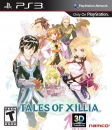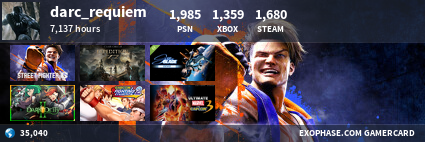You don't have to go very far to find a large group of people that find a large amount of anime stories to be visionary and genious. People have a habit of mistaking complexity for art and depth (I think Rocketpig is fond of saying this). What makes Kojima a bad story teller is that he has to tell you all of his ideas. He can't work them in. At some points, his characters literally spout philosphy. This is where he fails. There are no layers to the message. Layers come when the actions of the characters and the decisions they make are left up to the viewer/player/reader to explain. Kojima can't do that though. Artistic media doesn't tell you why, it asks you why.
Don't bring up the huge fanbase argument. Dane Cook has a huge fanbase and if I hear someone compare him to Richard Pryor then someone needs to die.
I initially wasn't going to reply to this post because these types of arguments are invariably dragged down by circular reasoning and "opinion VS. Opinion =in search for the ultimate truth" back and forth yelling but I'll make an attempt contending your point anyway.
You're right that a large fanbase in itself doesn't connote the game having a great storyline. But I think the nature of the MGS fanbase does do a good job arguing the quality of the storytelling. Again, I would direct you to some of the essays and analysis written on MGS2 in particular. If you want links I'll find them for you. Most of those discussions are very mature and well thought out, they are also well researched. Most of them of course are subjective views and deductions so they do not constitute a factual overview of the games, but they're quite credible if you consider all the research and analysis behind their arguments.
I think it is fair to say that you can find a lot of layered meaning in MGS games. They do present themselves more as tell than show, but the games are also vague enough in some aspects to leave it up to the player to form his own conclusions. Most of the characters in MGS games whether it be enemy or friend are morally gray where depending on your interpretations and beliefs you could justify, sympathise or abhor any one of them, including Solid Snake. At the end of MGS2 you could form your own opinions on what the Patriots said, vilify or glorify Solidus and his arguably Noble goals and literally ponder the meaning of life within the context of "passing on your genes" and "passing on your memes". The game raises the question whether is it what you pass on that defines your own existence, or do your actions and beliefs in life that you hold as your own, even solitary, justify you as an individual among billions of people, both alive and now dead.
It goes far beyond that and raises many other questions as well that aren't as clearly answered as you make it seem. Generally Kojima presents a single or maybe two views of an issue and he does so in a very overt manner, like you say "characters spouting philosophy". I don't necessarily see that as a bad thing, because it gives some background on different ideas you might not be familiar with and after absorbing those the player himself can decide to discard them or argue them and learn to form an entirely new opinion of his own yet still being aware of the ones presented to him.
I personally prefer this overt style of presentation, though the series does contain a lot of subtlety to its themes as well. Such as the Verrazano bridge during the beginning and GWB during the end of the game having been built by a single architect. Why did Kojima include that reference? Obviously its a reference to memes but what it is supposed to represent is up for interpretation.
Again, MGS is as deep as you're willing to dig. It can be a superficial comic experience or you can extract something
deep from it.

















































